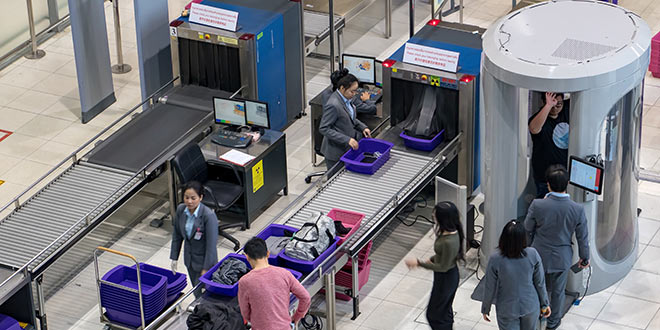
Full-body scanners should be newly present at Vaclav Havel Airport to facilitate security checks to detect objects that should not be on board. Prague Airport has announced a public tender for introducing the technology – common to many other airports.
Instead of passing through the security frame, the passengers should enter the scanner to show if they have anything dangerous on the screen. Basically, it virtually undresses the passenger. According to Roman Pacvona’s spokesman, Prague Airport has decided to purchase this technology “in connection with the need to constantly improve aviation safety, but also concerning the use of modern technology and the current security threat.”
“At the moment, we are asking for immediate purchase of a total of seven full-body security scanners with the possibility of non-guaranteed purchase of another eight over the next three years. We assume the delivery of new technology at the end of 2019 provided the tender is completed successfully,” added Pacvoň.
Prague Airport Plans to Buy up to Fifteen Scanners
According to Pacvoň, the introduction of full-body scanners in the security control process will increase passenger safety by allowing more accurate detection of objects, including localization on the passenger’s body. It is also intended to increase comfort, eliminating the need for additional palpation control when metal objects are identified. “Body scanners are more effective, especially when non-metallic objects such as gels and liquids are detected,” said Pacvoň.
The expected value of the contract for the purchase of the first seven pieces is approximately 30 million crowns, and the installation costs will be in the order of hundreds of thousands. “We plan to place six full-body scanners at the central security checkpoint in Terminal 2. One scanner will be placed at the security checkpoint at the Gates’ entrance on finger B. The original safety frames will remain in operation and will eventually function in conjunction with scanners,” said Pacvoň. So far, there is a single point scanner for passengers using the VIP lounge at Prague Airport.
Body scanners have been operating at many airports for almost a decade. Previously, the European Union wanted them to be made compulsory at all airports, but the proposal has failed. For example, in the Czech Republic, Dana Drábová, the head of the State Office for Nuclear Safety, refused to authorize them in 2010 as, according to her, they can cause cancer. The technology itself has progressed significantly since then and should not be harmful to health.
